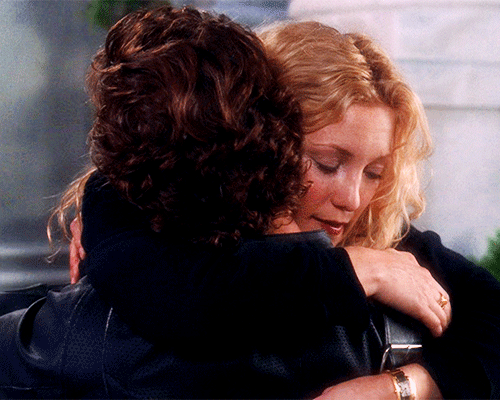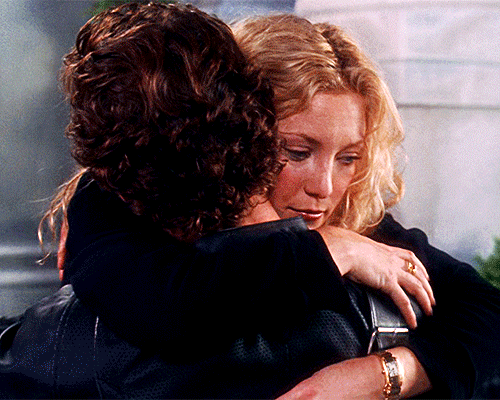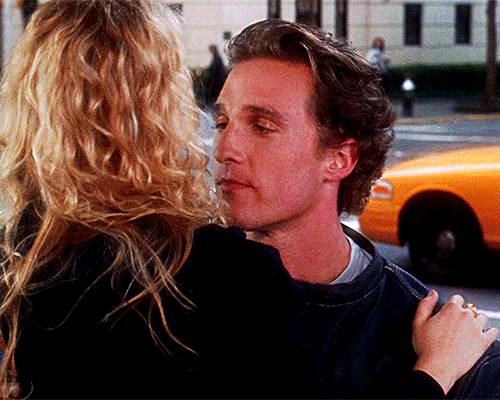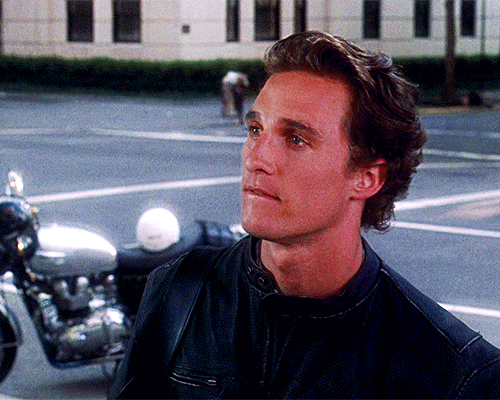Writing Dialogue
Writing Dialogue
I know someone’s gonna hate me for this, but dialogue is actually hands down the easiest part of writing for me. I used to struggle a lot with it, then one day something clicked and now my scenes are quite literally built on the dialogue - my rough drafts look like screenplays lmao. So, I might be the worst person to attempt to give tips on this particular subject, but I will do my best!
🌙
Unique Voices:
Every character should have their own voice. It might sound impossible at first, but here are some factors to consider when designing a speech pattern:
Upbringing. This is where it all begins, really. The way we speak can certainly change over time, but a lot of habits are gonna be established earlier on in life. So, who raised your character? How did their parents/siblings speak? Who were their friends, and how could their speech patterns have had an influence on your character? Where did your character grow up? Is the area known for a specific dialect or strong accent?
Age and era. Not only should you consider your character’s age, but also the era in which they’re living. If you’re in your thirties and you’re writing about a teenager in 2020, your character is not going to speak exactly the same way you spoke when you were a teenager. If you’re 20 and writing about a 20-year-old in 1920, they’re not going to speak exactly as you speak now. Do your research!
Who are they speaking to? Regardless of whether or not they live in a society where there is a very strict hierarchy between social classes or age groups, your character is still likely to adjust their speech depending on who they’re speaking to. Boss, teachers, parents, siblings, lovers - your character will probably have a slightly different way of speaking to all of these people.
Multi-lingual. Was your character raised with more than one language? Is the language your character usually speaks their first language? Are they entirely fluent? What might trigger them to slip into their first language - anger, excitement, meeting a certain person, praying, counting? Do they often forget or confuse certain words in one language or another? You can have a lot of fun with multi-lingual characters, but if you weren’t raised with more than one language yourself, I’d do some research before writing a bilingual character!
Slang. Again, if you’re writing a character who belongs to a different era/age-group/nationality to you, do a little research. You’ll want to avoid using stereotypical slang and speech patterns - for example, not a single fucking Irish person has ever seriously said “top o’ the mornin’ to ye”. Each person usually has a specific set of slang terms and expletives they favour.
I’m not a linguist, these are just some of the things I consider when deciding how a character might speak. Not all voices are 100% unique, so don’t stress yourself out too much. The way we speak is the sum of hundreds of different influences, many of which we share with others. The idea is just to keep these factors in mind and implement small changes here and there to make sure your characters’ voices stand out from each other.
Break it up!
No to big chunks of solid dialogue - it’s boring. Even if your character is going off on a long monologue, you should break it up with motion and description. Imagine you’re watching a play and the actor just stands there, stock still, emotionless, reciting these lines - no one wants to see that and no one wants to read it either, my fren. Below is the best example I could find in my recent writing of a monologue broken up with motion and description:

Only one character speaks for this whole thing, but even if it was a conversation, I’d weave those other details in through it in much the same way. As much as you can, try to drop in subtle reminders of the character’s surroundings and feelings and the reactions of whoever they’re speaking to. This keeps the reader in the scene.
Rehearse:
You might feel like a crazy person muttering random lines of dialogue under your breath, but saying things aloud can help you figure out if it sounds nice and natural or stilted and weird. We can’t all be Oscar-winners, I know, but for best results, you should try to channel your character and their emotions when you do it. Personally, when I’m in bed before I fall asleep, I play scenes through in my head like a film and that’s my kinda way of ‘rehearsing’ them.
Listen:
A lot of people have trouble actually constructing dialogue. You sit down to write and it’s like you’ve never had a conversation before in your goddamn life, I know the feeling. The first thing you need to do is stop putting so much pressure on yourself. Just like you can’t force conversation in real life without it getting awkward, I think it’s the same in writing. Relax, step back from the keyboard, shut your eyes and try to imagine the scene as if you’re watching a film - what are they saying?
If that fails, watch a film or an episode of something, listen to the actors. Read a novel and focus on the dialogue, how it’s constructed. When you’re out and about, listen to conversations going on around you, take notes of anything you find funny or interesting, anything that inspires a bit of dialogue for your story. Listening in this way is also a good exercise for studying other people’s speech patterns - think about how they’re unique and what the way they speak can tell you about them.
Practice:
I think this will be a point in most of my posts because it’s just so vital when it comes to all aspects of writing. Dialogue isn’t just a skill, it’s an entire group of skills. Within it, there’s humorous dialogue, flirtatious dialogue, arguments, etc. - the list goes on. They’re all a little different and present unique challenges, and you will be better at some aspects of dialogue than you are at others, so don’t get stuck in an I suck at dialogue rut, that’s not sexy at all.
Here’s a diverse list of dialogue prompts. To practice and challenge yourself, you could try building a conversation around each one or just a few. To start with, you could try writing only the lines of dialogue; when you feel more confident, start weaving in tone, setting, motion, etc.
✧・゚: * :・゚✧*
For me, the dialogue is the first thing I get. Before a scene has even begun to really take form, I have all these snippets of dialogue in my head, but then I often struggle with filling the gaps to make it a readable scene, you know? Every writer has different strengths. Dialogue may seem tricky at first, but you’ve been having conversations you whole life, pal, you know how to do it. The real trouble lies in finding your characters’ voices and figuring out how they’d interact with each other - once you’ve done that, the dialogue will come much easier for the rest of your story.
Sorry for the long gap between posts this time! I have a lot going on right now, but I love writing for this blog, it makes me feel like I know things, so thank you for all your support so far! Especially those who sent in asks - keep ’em coming! If I don’t reply, it’s because I plan to make a post on the topic, so don’t worry, I’m not ignoring anyone.
Thanks for reading, frens, I hope you’re all having a good day <3
More Posts from Euphcmisms and Others
i walk into the bank and up to the counter “yes what can i do for you” the lady asks. “motherlode” i reply and instantly i have $50,000 in my hand




“Have you had an aneurysm? No way!”

WASIRAUHLPSDS, coloring 365. you flower you feast (x)
Reddish coloring with green tone.
Don’t repost or claim as your own.
You can adjust the layers if you need to.
Like or reblog this post if you download.







HOW TO LOSE A GUY IN 10 DAYS | 2003 dir Donald Petrie
-
 oleksa24 liked this · 6 months ago
oleksa24 liked this · 6 months ago -
 ladyravenjadethe2nd reblogged this · 6 months ago
ladyravenjadethe2nd reblogged this · 6 months ago -
 ladyravenjadethe2nd liked this · 6 months ago
ladyravenjadethe2nd liked this · 6 months ago -
 heckcareoxytwit reblogged this · 6 months ago
heckcareoxytwit reblogged this · 6 months ago -
 heckcareoxytwit liked this · 6 months ago
heckcareoxytwit liked this · 6 months ago -
 fisheyedlens liked this · 1 year ago
fisheyedlens liked this · 1 year ago -
 farfromsugarr liked this · 2 years ago
farfromsugarr liked this · 2 years ago -
 ravrenclaws reblogged this · 2 years ago
ravrenclaws reblogged this · 2 years ago -
 parcdigm liked this · 2 years ago
parcdigm liked this · 2 years ago -
 noirchattreize liked this · 2 years ago
noirchattreize liked this · 2 years ago -
 mercyroseee liked this · 2 years ago
mercyroseee liked this · 2 years ago -
 strangerwinden reblogged this · 3 years ago
strangerwinden reblogged this · 3 years ago -
 alleygaze liked this · 3 years ago
alleygaze liked this · 3 years ago -
 meloxywrites reblogged this · 3 years ago
meloxywrites reblogged this · 3 years ago -
 hufflepuffminds reblogged this · 3 years ago
hufflepuffminds reblogged this · 3 years ago -
 cabin6halfblood reblogged this · 3 years ago
cabin6halfblood reblogged this · 3 years ago -
 hopefulbooklrspilledinkpie reblogged this · 3 years ago
hopefulbooklrspilledinkpie reblogged this · 3 years ago -
 edgymuses-a liked this · 3 years ago
edgymuses-a liked this · 3 years ago -
 anwnumfh liked this · 3 years ago
anwnumfh liked this · 3 years ago -
 antihell liked this · 3 years ago
antihell liked this · 3 years ago -
 iniquitoushybridrp liked this · 3 years ago
iniquitoushybridrp liked this · 3 years ago -
 halfbloodliz liked this · 3 years ago
halfbloodliz liked this · 3 years ago -
 deardirectah reblogged this · 4 years ago
deardirectah reblogged this · 4 years ago -
 mellowdoesnotdescribeme reblogged this · 4 years ago
mellowdoesnotdescribeme reblogged this · 4 years ago -
 untamedtempest liked this · 4 years ago
untamedtempest liked this · 4 years ago -
 rewindandunwind liked this · 4 years ago
rewindandunwind liked this · 4 years ago -
 count-v-dracula liked this · 4 years ago
count-v-dracula liked this · 4 years ago -
 fictionalized liked this · 4 years ago
fictionalized liked this · 4 years ago -
 cyber-neptune liked this · 4 years ago
cyber-neptune liked this · 4 years ago -
 radiovisual reblogged this · 4 years ago
radiovisual reblogged this · 4 years ago -
 bl00dh0rs3 liked this · 4 years ago
bl00dh0rs3 liked this · 4 years ago -
 darthmaulsgoatlegs liked this · 4 years ago
darthmaulsgoatlegs liked this · 4 years ago -
 kyberled liked this · 4 years ago
kyberled liked this · 4 years ago -
 dreamc liked this · 4 years ago
dreamc liked this · 4 years ago -
 bl--ankhaeji liked this · 4 years ago
bl--ankhaeji liked this · 4 years ago -
 moondustaeil liked this · 4 years ago
moondustaeil liked this · 4 years ago -
 heavenlyhuangs liked this · 4 years ago
heavenlyhuangs liked this · 4 years ago -
 jungwooisms reblogged this · 4 years ago
jungwooisms reblogged this · 4 years ago -
 kjmsupremacist reblogged this · 4 years ago
kjmsupremacist reblogged this · 4 years ago -
 kjmsupremacist liked this · 4 years ago
kjmsupremacist liked this · 4 years ago -
 adamfoolcry liked this · 4 years ago
adamfoolcry liked this · 4 years ago








